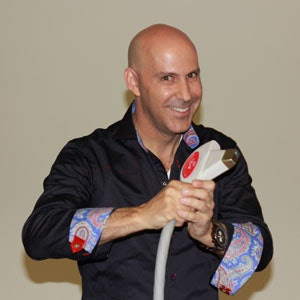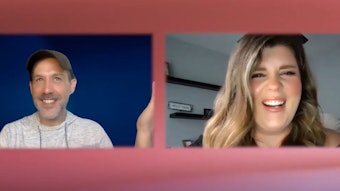
You’ve no doubt heard of Google, as one of the leading search engines. Did you also know that Google makes most of its money by selling advertising spots through its AdWords? While other search engines and social networking sites also sell ads, Google commands more than 40% of the global mobile digital advertising market. So, the question isn’t should you pay to run ads with Google AdWords, but what are five ways can you use it to grow your business like crazy. Let’s find out.
1. Increased Traffic to Your Website
First, let’s get a couple basic terms out of the way. Google AdWords is pay-per-click (PPC) advertising, the paid ads that pop up on the top or side of your screen when doing online searches. PPC’s job is to increase traffic to your company’s website (or preferably, a landing page—more on that later) when viewers click on your ads.
The more people click on a particular ad to reach you, the higher the click-through rate (CTR). Let’s say you search “best facial in Dallas” and three ads for local spas or salons pop up. How did they get there? Did they spend thousands for the privilege of being a Top Three result? Not necessarily. Performing well in Google AdWords actually has less to do with spending a lot of money than it does spending it wisely. This goal of this article is to help you spend wisely.
2. Keyword Planner Tool
This is a must-have for creating new ad campaigns or expanding existing ones, allowing you to check estimated traffic of keywords and phrases used to find the types of products and services you offer. It can help determine how much to bid on a particular keyword, and it can help you determine relevant content for your website’s information pages, blogs and more.
If you know that a lot of people in your area are searching on “best facial for darker skin types in AZ”, you can write an entire page around that topic, thereby potentially improving search engine optimization (SEO), or page/position in which your website pops up when someone searches using keywords relevant to your business. SEO differs from PPC in that the latter is a paid advertising spot.
With the Keyword Planner tool, you can also better focus your spending. If you want to spend $100/month, but a search in the Keyword Planner tells you the phrase “best facial Dallas” costs $20 every time someone clicks on your ad (CPC) when it appears, you’ll realize that that’s a highly competitive keyword phrase on which to bid, compared to something like “oxygen facial specialist North Dallas” at $1 per click. You can then determine whether you want to spend your entire monthly budget on five clicks for just one phrase ($20 x 5 = $100), or whether you’d like to spread out your budget among less competitive but good quality phrases. It may make more sense to go with the $1 per click phrase that could theoretically bring 100 visitors to your website, rather than one that would bring just five.
3. Trackable Results
One way to track results of your PPC campaign is through your landing page—the page people “land on” when they click on one of your ads. It should be a separate page from your website just for PPC and here’s why: while your website provides lots of useful information about your business, your landing page’s #1 goal is providing a call to action. So, your landing page is going to be simple—less is more—quickly conveying the message of what you’re selling and why you’re the best at it, preferably including a short video/live demo or attractive before/after images. The less information given, the more likely a visitor will fill out the easy form, call the highly visible phone number, etc. Include a not-so-visible link to your website. You want visitors to personally connect with you, not just view your website and leave. As with anything technology-related, the landing page should load as quick as lightning and be mobile-friendly, too.
Another free service called Ad Extensions allows you to include a direct but separate phone number to your business and/or additional information about your business such as hours, location and services. So, when people dial your number, they’re calling you through a trackable number. These provide more reasons to click on your ad, and while Ad Extensions can have a higher CPC due to increased competition, you often get more clicks for less money as opposed to increasing your position.
4. Brand Recognition
If your ads are performing well in impressions (the number of times they pop up), but you aren’t getting many click-throughs, you’re still highly visible in front of thousands of people. It is like a billboard on the freeway. You may not need the advertised service while sitting in traffic, but you’ll remember when you search later with the company name. Like direct traffic, branded searches often convert well and can have a positive impact on your overall rankings.
5. Free AdWords Consultations
Once you’re set up on Google AdWords, you’ll probably get an email asking if you’d like a free consultation with a specialist. The specialists are knowledgeable and can save you a ton of time/money in designing your campaign so that it’s performing optimally. They’ll even look at your website and make suggestions on how to tie it in with your campaign. And you’ll also get a direct line you can call with any question, any time, about your ads.
Top Three Google AdWords Tips
1. Check ROI. Review your return on investment (ROI) by checking ad performance weekly. If you’re spending $100/month on AdWords and as a result, consistently selling five package deals at $200/each, you’re definitely getting your money’s worth. If not, make necessary changes.
2. Investigate poor results. If you aren’t getting the results you want, figure out why. Look at the businesses whose ads are popping up when you search online using your selected keywords and phrases. Ask five friends to look at three of your competitors’ ads and ask them, which business they would be likely to call for an appointment, and why? Then tweak yours accordingly.
3. Keep content fresh. Use the Keyword Planner tool both in your AdWords and your website’s content to keep content fresh. Google loves fresh, relevant content, so be sure you’re providing that regularly.











